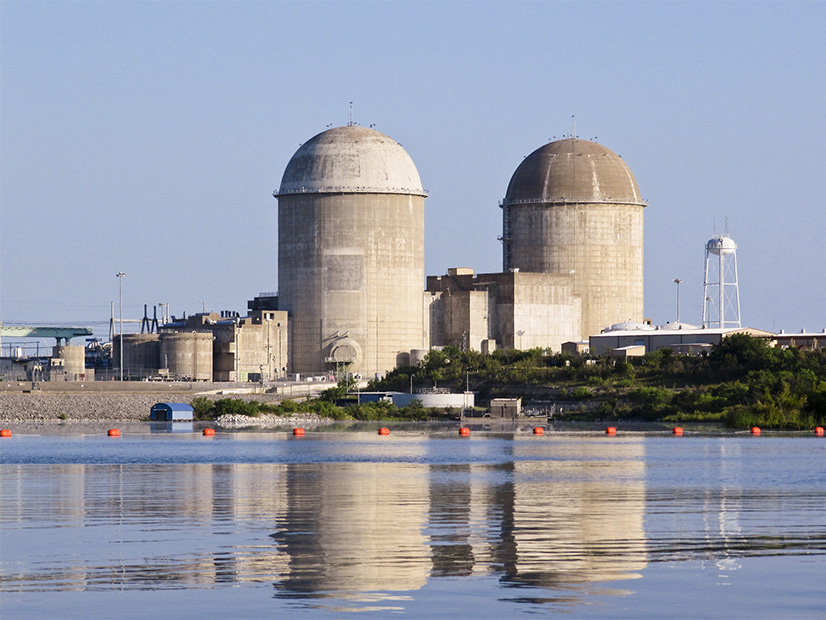Texas regulators last week asked the state’s Supreme Court to overturn a recent appeals court ruling that could force ERCOT to unwind market transactions during the deadly February 2021 winter storm.
Attorneys for the Public Utility Commission said in a filing Thursday that the appeals court’s ruling should be overturned because the orders it issued expired years ago and therefore cannot be voided. They defended the commission’s actions during the storm, saying it made “split-second decisions” necessary to help correct a market failure (23-0231).
The PUC urged the Supreme Court to review the decision, reverse the judgement, and either dismiss the case or rule in the commission’s favor.
The 3rd Court of Appeals on March 17 reversed two PUC orders to keep the market’s wholesale prices at the $9,000/MWh cap during the storm. The court found the commission’s actions “entirely” eliminated competition and were contrary to state law. It remanded the case for “further proceedings consistent” with its ruling. (See Texas Court Reverses PUC’s Uri Market Orders.)
The PUC said the high court should grant its petition because the orders in question expired shortly after the storm, rendering them moot.
“They no longer exist, so the Court of Appeals could neither affirm nor reverse them,” its attorneys argued.
The commission said the appeals court created “harmful precedent” by allowing a statute’s general policy statements to “trump both specific grants of authority and the statute’s overall policy objective.” The court focused solely on market competition, it said, ignoring the PUC’s responsibility to balance the law’s policy objectives.
It said the court’s reasoning calls into question any commission rule that “arguably limits competition” and that its “invented” constraints could hamstring future efforts by the PUC and ERCOT to “ensure ‘the reliability of the regional electrical network.’”
The PUC’s attorneys also argued that the appeals court’s decision has “surprised the electricity world” and introduced “mass uncertainty” into Texas’s electricity markets.
“The markets are already reacting to that uncertainty in ways that are hard to predict,” they wrote.
3 Mitigation Plans Amended
During the PUC’s open meeting last week, it also approved amended voluntary mitigation plans (VMP) for Luminant, NRG Energy (NYSE:NRG) and Calpine that add “clear” guidelines for their non-spin reserve service (NSRS) offering practices in ERCOT’s day-ahead ancillary services market (54739, 54740 and 54741).
Staff earlier this month determined that language in the mitigation plans provided the generators with an “absolute defense” against market abuse allegations related to the service’s submitted offers at prices up to the high systemwide offer cap (HCAP). They estimated non-spin capacity awarded to large suppliers for noncompetitive offers submitted between August 2021 and July 2022 to be between $285 million to $380 million.
The revisions eliminate language that allows offers and/or bids for day-ahead market energy and ancillary services at prices up to and including the HCAP.
Non-spin ancillary service market outcomes are affected by offers from all suppliers, and Luminant, NRG and Calpine are the largest suppliers. ERCOT’s conservative operations posture, instituted in the latter part of 2021, expanded the service’s procurement from an hourly range of 1,175 MW-1,838 MW to 3,654 MW-4,303 MW. That affected the amount of excess supply and increased the likelihood that the grid operator must rely on certain suppliers to meet procurement requirements.
Staff said that when a supplier is frequently pivotal to non-spin’s procurement, it does not forego profit if it submits offers higher than a competitive level. Instead, they said, the supplier would be incented to increase its offers to obtain excess rent and would effectively be able to control the price at which ERCOT must procure ancillary services.
Independent Market Monitor Director Carrie Bivens, who signed off on all three mitigation plans, said they were not effectively mitigating anticompetitive conduct in the non-spin market “given that there is currently no planned end date to ERCOT’s increased non-spin procurement.”
She said the amended mitigation plans will continue to provide the generators with “reasonable safeguards against the potential exercise of market power in the ERCOT markets that may constitute an abuse of market power.”
One of nine bills offered by the Texas Senate earlier this month addresses VMPs. SB2011 would require plans be updated at least once every two years and raises violations from $25,000/day per violation to up to $1 million/day per violation. (See Texas Senate Lays out Changes to ERCOT Market.)
Luminant’s mitigation plan dates back to 2019, NRG’s to 2012 (it was first amended in 2014), and Calpine’s to 2013.
The PUC did not assess any financial penalties.




